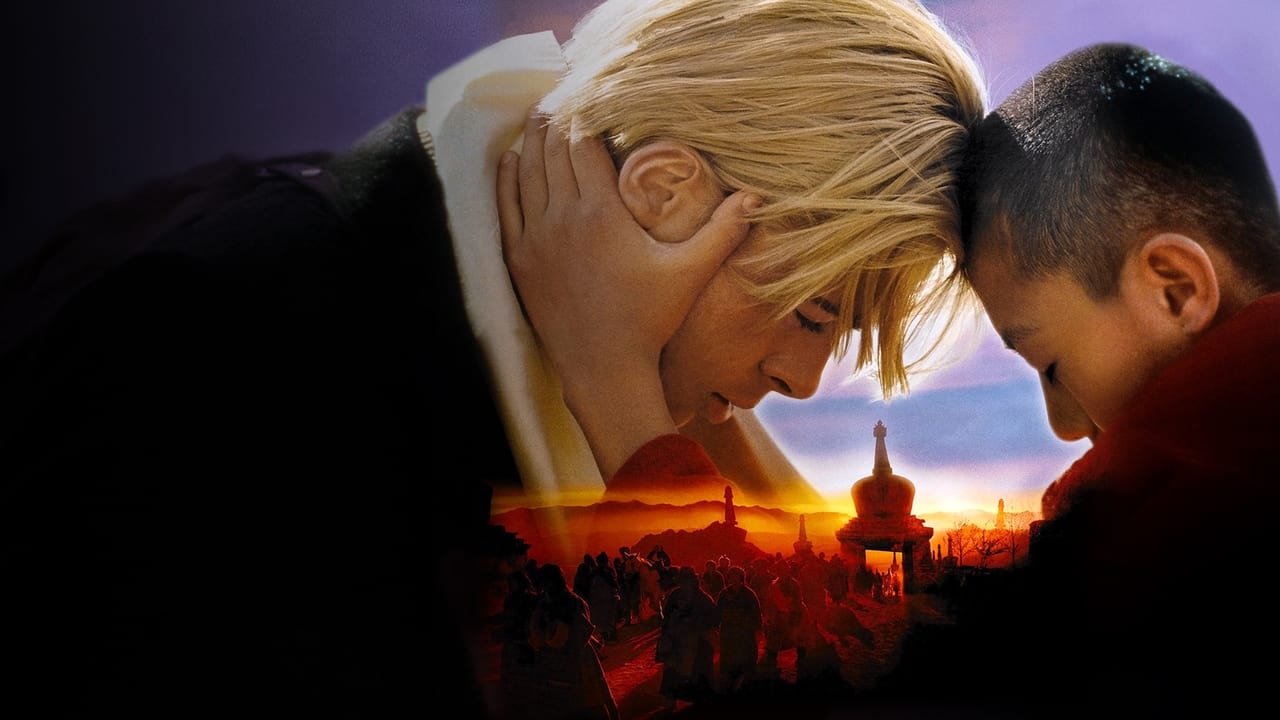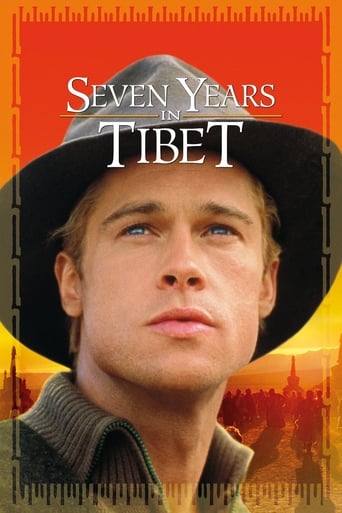Holstra
Boring, long, and too preachy.
Nessieldwi
Very interesting film. Was caught on the premise when seeing the trailer but unsure as to what the outcome would be for the showing. As it turns out, it was a very good film.
Zlatica
One of the worst ways to make a cult movie is to set out to make a cult movie.
Raymond Sierra
The film may be flawed, but its message is not.
emmagoodwin-19771
This was a controversial film upon release and if I am not wrong its outright banned in China. It's a good film based on the real experiences of an Austrian explored and the dalai lama during some difficult period in Tibetian history(basically Chinese Occupation). Brad Pitt plays the lead character and is pretty alright. David Thewlis plays his mate. The child playing the young Dalai Lama steals the show though and the scenery of Tibet is a plus point. Great topic but an average film.
Writer_Mario_Biondi
This is a really bad piece of disinformation and propaganda. Harrer is depicted as ant-Nazi, while in his real life he was very proud of the honors he received from Hitler and the photos where he appears with the Nazi boss. As a matter of fact he did not leave Tibet until 1950. Why did he remain there? Was he acting as an "adviser" for some Western power? Was he scared of going back to Austria and being summoned by an anti-Nazi courtroom? Or was he even more afraid to fall in the hands of Chinese judges? After all, he was a Nazi, allied with the Japanese, who had invaded China and killed thousands and thousands of innocent Chinese people. And Aufschnaiter? Did he really remain in the Himalayan areas because he had "married a Tibetan woman"? Or was he similarly afraid to go back to the West? After all, he had joined the Nazi Party in 1933. And so on. Movies should be respectful of History and not play with It and twist It as if It were a toy to use for political amusement.
Gillian Wei
Beautifully filmed and well scored, Seven Years in Tibet narrates the story of Austrian mountaineer Heinrich Harrer's journey (both physical and spiritual), his experiences in Lhasa, and his friendship with the child Dalai Lama. Heinrich Harrer's transformation from an emotionally immature and egotistic narcissist to an enlightened and more sensitive man parallels the story of Buddha's path to enlightenment.. Buddhism's underlying doctrine is that of compassion and it offers it's adherents a way of living that will remedy the suffering of the human condition. Harrer's discontent is his suffering. Prior to his journey to Tibet, Harrer's marriage is falling apart and he openly resents Aufschnaiter, the leader of the expedition to the Himalayas. Through his friendship with the Dalai Lama and the detachment from his "European way of life", Harrer learns to leave behind his selfish tendencies. He grows to regret abandoning his pregnant wife in favor of his own ambitions and manages to overcome his jealousy of Aufschnaiter for marrying Pema Lhaki. The wisdom that he gains from the Dalai Lama and Buddhist teachings even drives him to leave his beloved Tibet to return to Austria in order to make amends with his wife and son. As he deals with the challenges of scaling Nanga Parbet (the ninth highest mountain range in the world and the death of dozens of mountaineers before him), as well as the political turmoil of World War 2 Europe, he so too deals with his own demons and, despite not formally converting to Buddhism, adapts the clarity of a Buddhist way of life.
steve-woller
Ever since Ronald Colman raised the bar of expectation by his not so chance encounter with Shangri-La in the 1937 movie rendition of "Lost Horizon", we have been trying to find our way back. Thanks to movies like "Seven years in Tibet", we can focus on the real issues rather than paradise revisited.With the release of the movie version of Heinrich Harrer's "Seven Years in Tibet" we are presented with a different story - one less fairly tale...Jacque Annaud's...film allows us to move away from the fantasy created by "Lost Horizon"... Annaud succeeds in bringing Tibet to life, to make it more human, more real.As much as the story is Harrer's, it seems inevitable that the focus moves away from him and onto the Dalai Lama. The book reads like an outsider looking at things from the outside in. The focus of the book, is all Harrer. Luckily, film has an ability to visualize the books cannot ever provide - a real immediate feel. The movie is everything and it at times almost feels like it will slide into Indiana Jones. However, the power of Tibet saves it. It almost feel like Pitt and Thewlis are out of place. The real stars are the set, the landscape and the Nepalese extras. Filmed everywhere but Tibet, the film does give its western audience a real soft landing, one that they will not get with Scorsese's "Kundun"... Hollywood does need to supply a demand and we demand epic scenes, high priced talent, a sense of the exotic. As if east meets west and the fusion of the two is greater than the sum of the parts. For the attention to detail, I can't help but sing the praises. If you can stomach Pitt's fake Austrian accent, the film is a visual delight. It would be a tempting fantasy to hope that we can preserve it...

